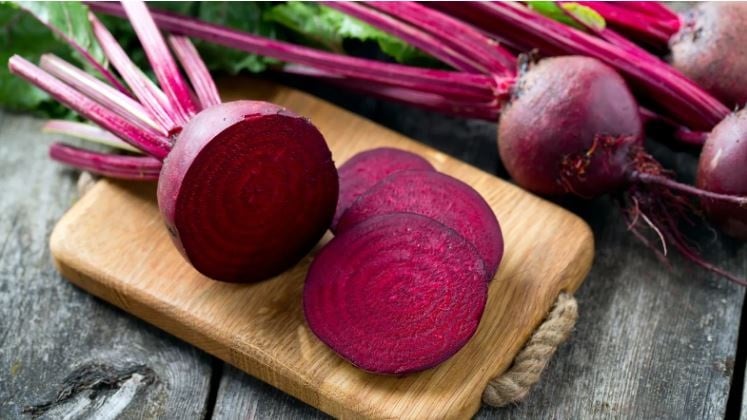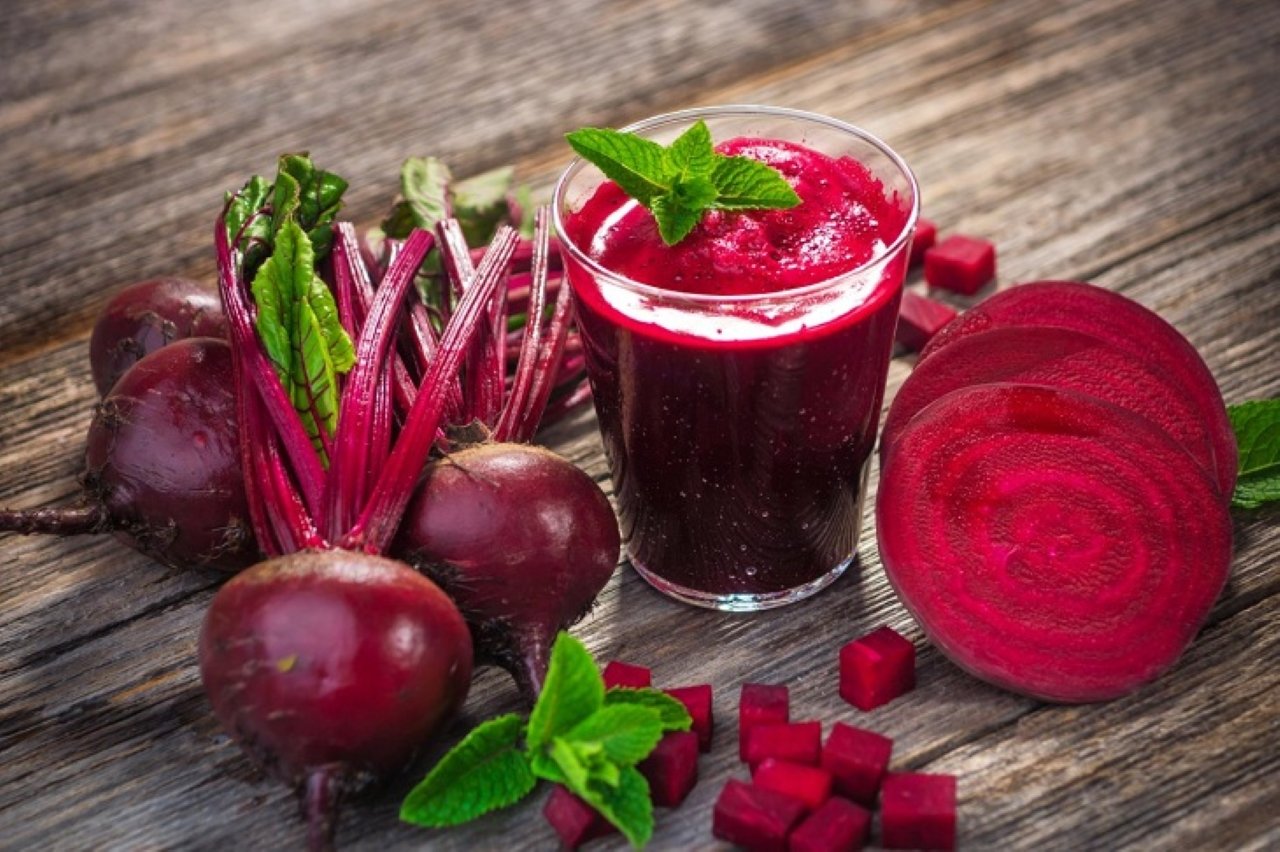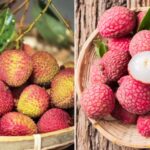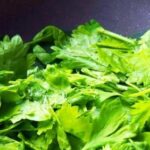Nutritional Value of Red Beetroots
In traditional medicine, beetroots are believed to have a sweet and slightly bitter taste with cooling properties. They are thought to benefit the heart, stimulate the appetite, strengthen the spleen, and lower qi, among other effects. The seeds are said to cool the body and induce sweating, while the leaves reduce inflammation.
Beetroots, with the scientific name Beta vulgaris, belong to the goosefoot family (Chenopodiaeae). Numerous global studies have hailed beetroots as one of the healthiest vegetables, highly effective in fighting against leukemia and cancer.

According to scientists, beetroots are rich in betaine, an amino acid with potent anti-cancer properties. Research confirms that betaine, once absorbed into the body, destroys cells within tumors. Additionally, it acts as a powerful anti-inflammatory and antioxidant.
For healthy individuals, consuming beetroots boosts liver and gallbladder function, prevents constipation, and alleviates headaches, toothaches, dysentery, bone and joint issues, skin problems, and menstrual irregularities. Notably, beetroots are extremely beneficial for pregnant women due to their high content of folic acid, iron, and vitamins.
The vibrant red color of beetroots is attributed to a natural combination of yellow plant pigments (betacyanin) and purple pigments (betaxanthin). These pigments are plant chemicals and antioxidants that protect the body against free radicals, thus preventing cardiovascular disease and cancer. To retain the quality of this color combination, nutritionists recommend cooking beetroots with their skins intact.
Beetroots are an excellent source of vitamins A, B1, B2, B6, and C. The leaves and stems contain more iron than spinach. Beetroots are also rich in calcium, magnesium, copper, phosphorus, sodium, and iron.
Notably, red beetroots are particularly rich in vitamin C and iron, both essential for our health. These nutrients are crucial for overall well-being, and many individuals struggle to obtain adequate iron through their diet. Interestingly, the young leaves of red beetroot plants contain more iron than spinach.
Medicinal Uses of Beetroots
1. Beetroots for Blood Enrichment and Radiant Skin
The red color of beetroots is derived from the natural compounds betacyanin and betaxanthin. This root vegetable is abundant in vitamin C and iron, which aid in regenerating and stimulating blood cells and providing oxygen to the body.
Vitamin C enhances iron absorption. Pregnant women can naturally boost their iron intake by incorporating beetroot dishes into their diet.
Additionally, many women avoid using skincare products during pregnancy, but they can apply beetroot juice topically to their skin daily to moisturize and promote a radiant, smooth complexion.

2. Beetroots for Lowering Blood Pressure
According to a recent study by the Wake Forest Baptist Medical Center, daily consumption of beetroot juice can significantly improve blood pressure in elderly individuals with cardiovascular issues. Additionally, it increases their endurance during physical activity.
This research involved randomly selected participants whose physical activity levels were monitored while they consumed a daily amount of beetroot juice for several days.
The study found that daily beetroot juice consumption increased endurance during physical activity by 24% after one week. It also reduced blood pressure in both the one-day and multi-day consumption groups.
3. Beetroots for Cancer Prevention
Research has indicated that red beetroots are highly effective in preventing skin, lung, and intestinal cancer due to their content of betacyanins, which combat cancer cell growth. Some experts in Hungary also discovered that red beetroot juice and its powdered form slowed tumor growth.
Additionally, there is a method called the Breuss treatment, named after the Austrian herbalist Rudolf Breuss. He dedicated his life to finding a cure for cancer and eventually succeeded. With a simple blended juice recipe, he helped over 45,000 people suffering from cancer and other severe illnesses.
It is important to note that this method has not been scientifically studied or proven to cure cancer for everyone. Cancer patients should view vegetables and fruits as functional foods to support their treatment journey. Maintaining a daily habit of consuming these plant-based foods can boost immunity and aid in the healing process.
4. Beetroots for Cardiovascular Health
The fiber in red beetroots reduces cholesterol and triglycerides by increasing beneficial HDL cholesterol. Additionally, the presence of betaine prevents the buildup of homocysteine, a compound that damages blood vessels.
Therefore, regularly consuming red beetroots helps protect cardiovascular health and prevents conditions such as atherosclerosis, heart attacks, and strokes.
Precautions when Consuming Beetroots
- While beetroots offer numerous health benefits, excessive consumption may lead to adverse effects.
- Individuals with low blood pressure should consume beetroots in moderation, as they can further lower blood pressure.
- For those experiencing stomach and intestinal issues, beetroots may exacerbate the problem, leading to cramps, bloating, and changes in bowel movements, including diarrhea and constipation.
- One of the side effects of beetroot consumption is an increase in blood sugar levels, which can be problematic for individuals with blood sugar control issues. Beetroots have a high glycemic index, so they should be avoided by those managing blood sugar concerns.
- Beetroots are rich in oxalates, which can contribute to kidney stone formation if consumed in excess. This vegetable also contains high levels of betaine, which can worsen kidney problems. Individuals with a history of kidney stones should refrain from consuming beetroots.
“Not Just Any Old Dock: Uncovering the Hidden Gold Beneath the Leaves”
Have you ever imagined that the roots of a wild vegetable growing in your backyard could bring farmers millions of dong per kilo? Amaranth, a humble vegetable reminiscent of many people’s childhood, has now surprisingly gained a new lease of life thanks to its roots, a part often overlooked in the past.
Unveiling the Wonders of Rau Lạc Tiên: A Crunchy Northern Delicacy with Surprising Benefits
The northern region of [country/state/province] boasts not only breathtaking landscapes but also a plethora of unique specialty vegetables. Among these, the lac tien vegetable, with its distinctive tufted growth and delicious crunchy texture reminiscent of squash vines, is gaining popularity and capturing the interest of many.





































